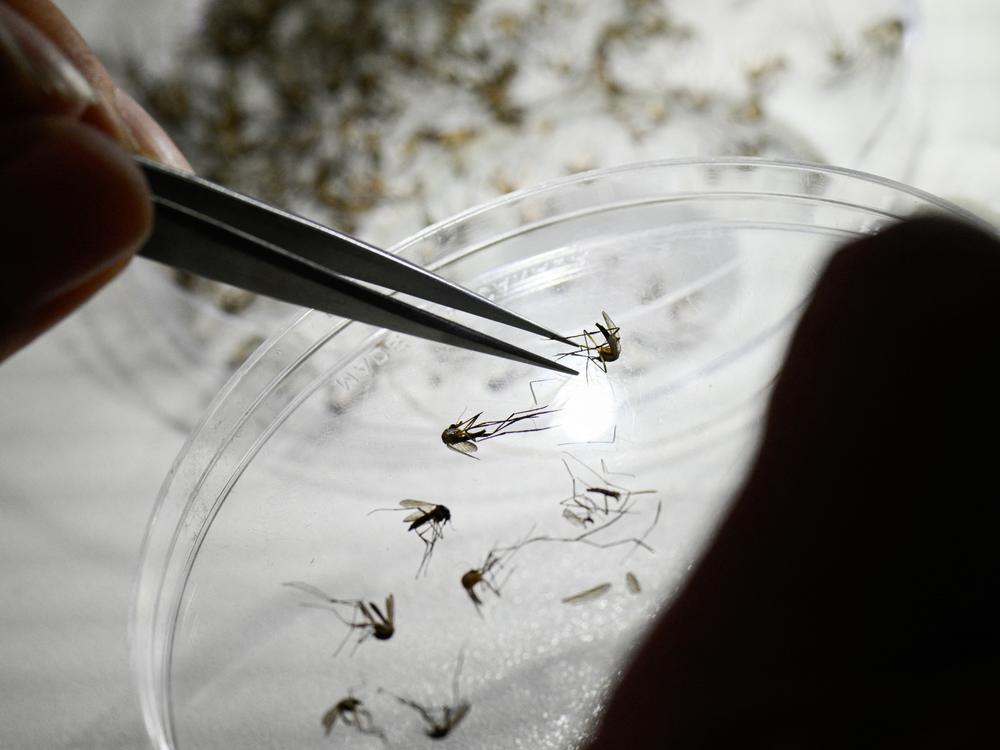Section Branding
Header Content
Here's what to know about dengue, as Puerto Rico declares a public health emergency
Primary Content
Puerto Rico has issued a public health emergency after recording an unusually rapid rise in dengue cases over the first few months of this year.
It's the latest area to grapple with a surge of infections of the mosquito-borne disease, which sickens an estimated 100–400 million people globally each year.
According to Puerto Rico's health department, the territory has recorded 549 cases since the start of the year, nearly half of which have occurred in the San Juan region. Puerto Rico saw a total of 1,293 cases throughout all of last year, the Associated Press reported.
"This year, dengue cases have exceeded historical figures," Puerto Rico's health secretary Carlos Mellado López said in a statement.
Dengue has been surging elsewhere, too. Brazil has seen a dramatic uptick in dengue this year, with more than one million cases, while Peru experienced a record number of infections last summer. Argentina is also on the cusp of a record-breaking dengue outbreak.
According to the World Health Organization, about half of the world's population is now at risk for the disease.
What is dengue?
People typically contract dengue through the bite of an Aedes mosquito infected with one of the four types of the dengue virus.
Most people with dengue will show no signs of infection or experience only mild symptoms, such as fever, muscle and joint pain and nausea. They typically recover in one or two weeks.
According to the Centers for Disease Control and Prevention, only a quarter of people infected with dengue get sick.
In rare cases, dengue can require hospitalization and be potentially fatal. More severe symptoms include bleeding gums and nose, abdominal pain and persistent vomiting.
Those who've gotten dengue previously are more likely to become seriously ill with a subsequent infection.
Though there is no specific medicine to treat dengue, sufferers can take acetaminophen to control their fever and reduce pain.
How to keep yourself safe
Roughly half of the Earth's population could catch dengue where they live. Found most commonly in tropical and subtropical climates, dengue is endemic to more than 100 countries in Asia, Africa, the Americas and elsewhere, according to the WHO, and has been spreading to parts of Europe. Last year Florida and Texas reported dengue cases.
There is a vaccine for dengue called Dengvaxia. In the U.S., it is approved for use in children between ages 9–16 who have previously been infected with the disease, and in other parts of the world it is available to adults up to age 45.
Experts say the best way to avoid contracting dengue is to prevent mosquito bites.
Insect repellents such as DEET, Picaridin and IR3535 can help keep mosquitoes at bay. People can also wear loose-fitting clothing that covers their arms and legs and use mosquito nets.
At home, people should have screens in windows and doors and regularly dump standing water from items like flower pots to prevent mosquitoes from laying eggs.

